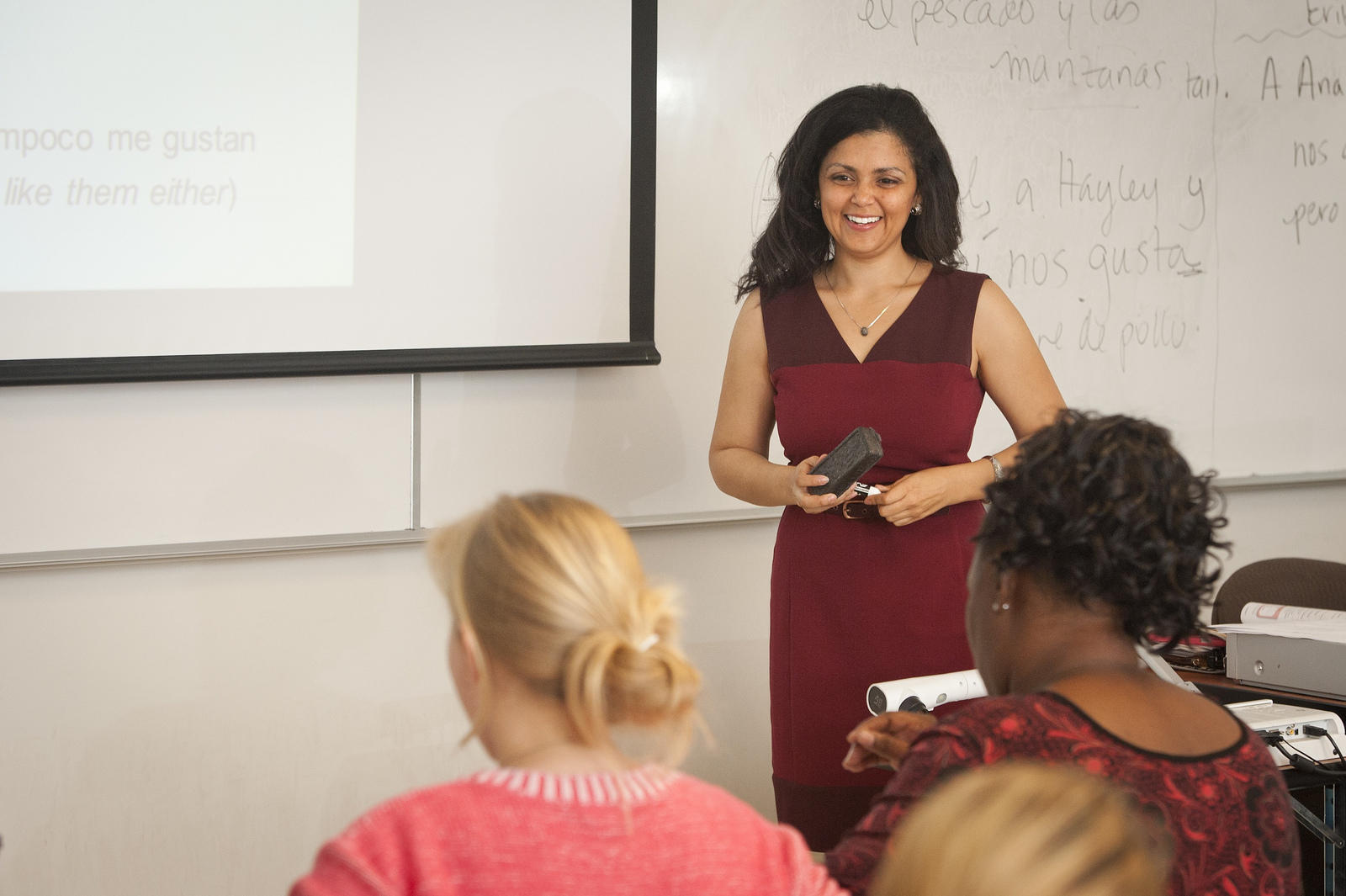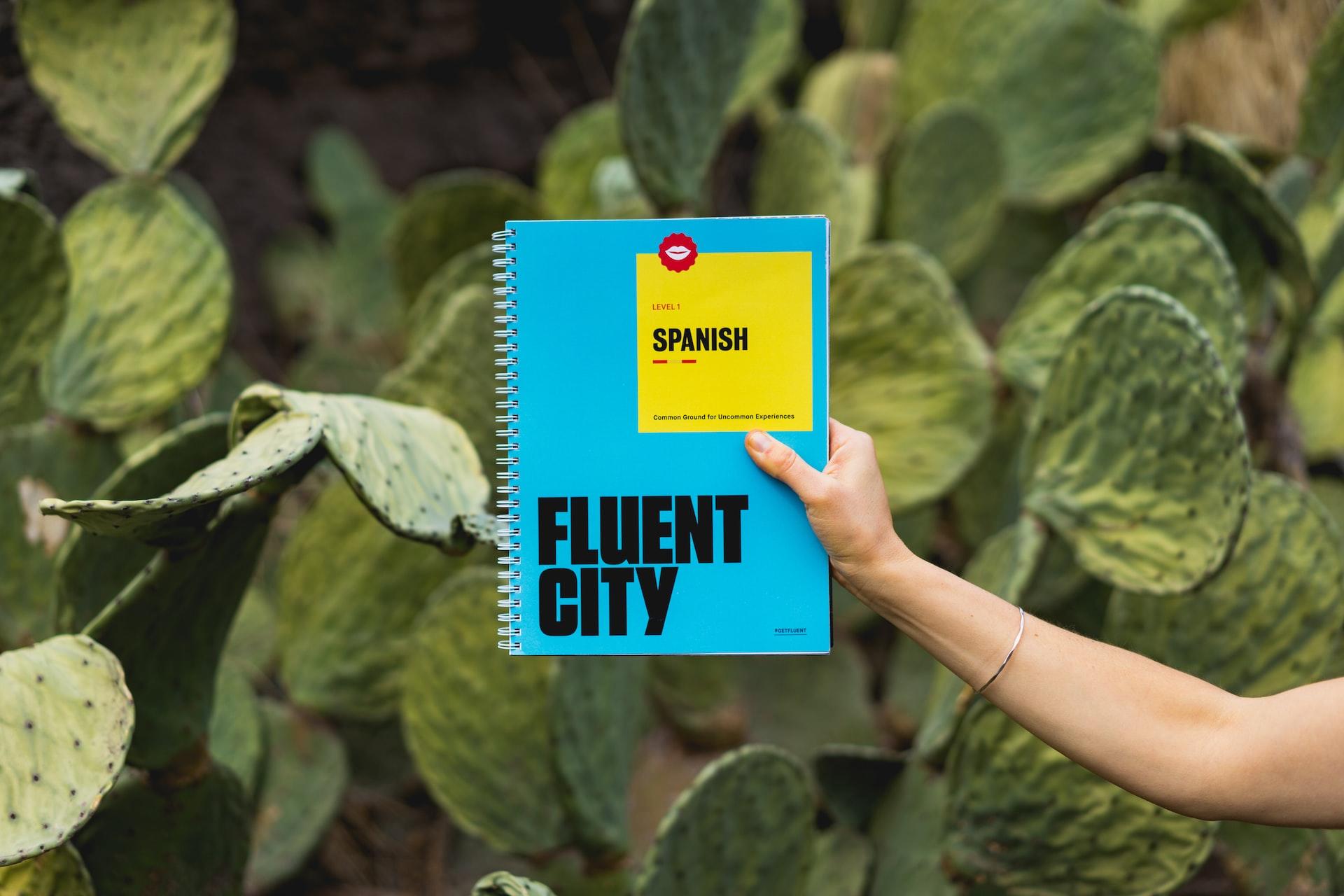¡Qué bien! You've decided to study Spanish. Learning any foreign language is a great idea, especially if you plan to take it seriously and become bilingual. However, it's not always easy so it's important that you choose the right way to learn Spanish.
You'll likely want the answers to the following questions.
- Which Spanish teacher should you learn with?
- How quickly can you learn Spanish?
- How much is learning Spanish going to cost?
Foreign language lessons with a private tutor are always an excellent way to learn quickly, improve your speaking, or get ready for Spanish tests and exams.
Too many people fail to choose a Spanish course or tutor in accordance with their level, what they want to learn, and how they like to learn.
Let Superprof help you to choose the right Spanish teacher and find Spanish classes that work with you and your budget.

How to Choose the Perfect Spanish Teacher
In terms of all foreign languages, Spanish is one of the easier ones to learn. With 440 million native Spanish speakers, it's the world's second-most spoken language, making it a great choice to learn.

You can learn to read and write in Spanish quite quickly. Spanish is also relatively easy to listen to. Grammar, vocabulary, and conjugations tend to be trickier, but you will get there in time. Spanish is actually a language that native English speakers can learn to a good level without too many problems.
The best way to learn Spanish quickly is by choosing the right Spanish tutor or teacher right from the start. The best way to do this is by being clear with your expectations before hiring anybody. Talk to potential Spanish tutors and teachers about why you want to learn the language, your past experience with languages, and how you like to learn.
No two Spanish tutors are alike. You'll find tutors who are qualified teachers, bilingual students looking to earn some extra cash, native Spanish speakers who want to teach their language to others, etc.
With just a quick search on the Superprof website, you'll start to see all the different options you'll have.
The level they teach is also important. Some tutors may specialise in teaching young learners and those still in school while others might focus on business Spanish for adults or other specific uses of the language.
All of this will affect the cost of the lessons and since every Spanish tutor can set their own prices, it's worthwhile shopping around before deciding on who's right for you both in terms of content and budget.
Your own aspirations will likely be the deciding factor. Students who want to become fluent in Spanish will probably be willing to pay more for intensive lessons over a shorter period of time whereas those wanting to travel to a Spanish-speaking country as a tourist might only need the basics to help them get around. Who you hire will depend on exactly what you want to learn Spanish for.
Preparing Yourself Before Your Private Spanish Lessons
Are you going to learn Spanish in a Spanish-speaking country? Immersion is one of the best ways to learn a language. While it's technically quite cheap once you're there, the cost of moving to another country makes it one of the more expensive ways to learn a language.
If you're staying in New Zealand, you can learn Spanish online from tutors in Spanish-speaking countries or learn at home with a Spanish tutor that comes to you.
Here's how the latter works.
Learning Spanish will start before your lesson. You need to prepare for each lesson so that you can get the most out of them and improve your Spanish as much as possible.
If you know what the class is going to be on, you can familiarise yourself with the vocabulary that you're going to use. Put together lists of words, expressions, verbs, phrases, etc. before the lesson and you'll learn much more during it.
Be an active learner and take notes. It's also worthwhile keeping a vocabulary book to take note of the things as you learn and keep track of your learning. You could think of it as a journal or diary for Spanish and you can always refer back to it if you think you've covered something before.

You may also want to buy Spanish resources like dictionaries and textbooks. Make sure that the books and resources you buy are appropriate to your level. You can get general guides or specialist resources that focus on pronunciation, phonetics, the Spanish accent, grammar, and conjugating verbs.
It may sound a bit outdated to some younger readers, but you can also go to your local library for resources. Not only is this great for finding resources, but most libraries offer an excellent space to study. With Spanish (or any other language), you never stop learning so don't forget that there are plenty of opportunities to brush up on your language skills wherever you are.
Students who prefer modern technology are also spoilt for choice as there are a lot of apps including ones like Duolingo and El Conjugador which you can install on smartphones and tablets. Generally, most apps are for beginner and intermediate levels so once you start speaking Spanish well, you may find yourself outgrowing them.
The good thing about apps is that they're generally quite fun and gamify the language-learning process. With challenges, rewards, and things to unlock, it can be quite fun to open an app each day and learn a bit of Spanish. The best thing about them is they'll pretty much be with you wherever you go so if you find yourself with a few minutes to spare, you can study some Spanish!
Multimedia like videos, podcasts, and the radio are excellent ways to improve your Spanish, too. Consider watching and listening to things in Spanish that are appropriate to your level.
YouTube has literally millions of videos in Spanish and you can train your ear by listening to native Spanish speakers. This also means that you'll hear how Spanish is spoken by natives and learn vocabulary that's rarely featured in Spanish textbooks. It's far more enjoyable to learn conjugations naturally by hearing others use them in context than practising them through repetitive drills.
Thanks to Spanish videos, you can learn at your own pace whenever you find the time. Because they're videos, you can also pause and go back if you miss something. There are also plenty of Spanish tutorials and Spanish lessons and exercises designed specifically for those wanting to learn the language.
There are far too many Spanish YouTubers teaching Spanish to list them all, but here are a few that we recommend: PolyglotPablo, 123TeachMe, Why Not Spanish, Maria Espanol, Spanish101pod.com, Learn Spanish with Paulino, Professor Jason, ProSpanish, and Tu escuela de español!
If you're the kind of person that listens to something as they go to sleep, you might want to give Sleep learning a try. With this channel, you can learn Spanish while you sleep. There are videos that last up to 3 hours, allowing you to listen to Spanish in your slumber.

How Much Does It Cost to Learn Spanish?
You probably want to know the cost of a Spanish lesson with a private tutor. Unfortunately, most private Spanish tutoring isn't free so students will have to consider the cost. However, learning Spanish with a private tutor is arguably the most cost-effective than a lot of the other solutions you'll find online.
There are still some very affordable private tutors out there, but you will pay more for a tutor's specialisation, especially if they offer exam prep, business Spanish, or a high level. You can always find cheaper private classes with online tutors as they don't have to travel to their students and thus have expenses to cover.
Location and the cost of living will also affect the cost of tutoring with tutors in more expensive cities tending to charge more.
Spanish Tuition in National Education Programs
Many students around the world are learning Spanish and New Zealand is no exception.
We've already mentioned how widely spoken Spanish is in the world and this is one of the main reasons so many countries tend to teach it to their students. Generally, the more a language is spoken, the more likely you are to find work by speaking it.
So how can students in New Zealand learn Spanish and how good is Spanish teaching in the country?
National curriculum Spanish allows students to start studying the language from an early age in many parts of the world. In most cases, young students learn the basics through games, songs, and fun activities before shifting to more serious tuition and learning about Spanish grammar, vocabulary, and culture.
Interestingly, Spain is actually the antipode of New Zealand!

In most cases, the goal of teaching children Spanish is so that they can become proficient speakers of the language. This is achieved through studying the language itself, Spanish-language media like books and films, and studying aspects of Spanish-speaking culture to contextualise the language for learners. Naturally, older students will study more advanced aspects of the language and delve deeper into culture and media.
In New Zealand, Spanish is the third-most studied language behind Chinese, but the popularity of the Spanish language in New Zealand schools has remained fairly stable in recent years.
Preparing for Spanish Exams
You can prepare for a Spanish exam in a number of different ways: language schools and centres, study abroad, take private Spanish lessons with a tutor, etc. There are a good number of ways to improve your Spanish before taking a Spanish exam.
Spanish exams, like any other language exam, will test students on reading, writing, listening, and speaking (the four main competencies of any language).
It's important that your revision covers the skills being tested and that you get as much practise as you can for each exam you take. With reading and writing exams, you'll likely focus on grammar, tenses, vocabulary, etc., whereas speaking and listening exams will focus much more on practising those skills plus any exam-specific vocabulary and grammar you'll be expected to recognise or reproduce.
Vocabulary is an inescapable part of learning languages, especially when you have a test or an exam to do, but exam technique can make the difference because even if your Spanish is good, you can always make costly mistakes by not understanding what the exam is asking you to do.
We wish you the best of luck on your journey to Spanish fluency. A private tutor can help you a lot so make sure you search carefully for the right one and you'll soon achieve your goals and be speaking Spanish!
Summarise with AI:
























